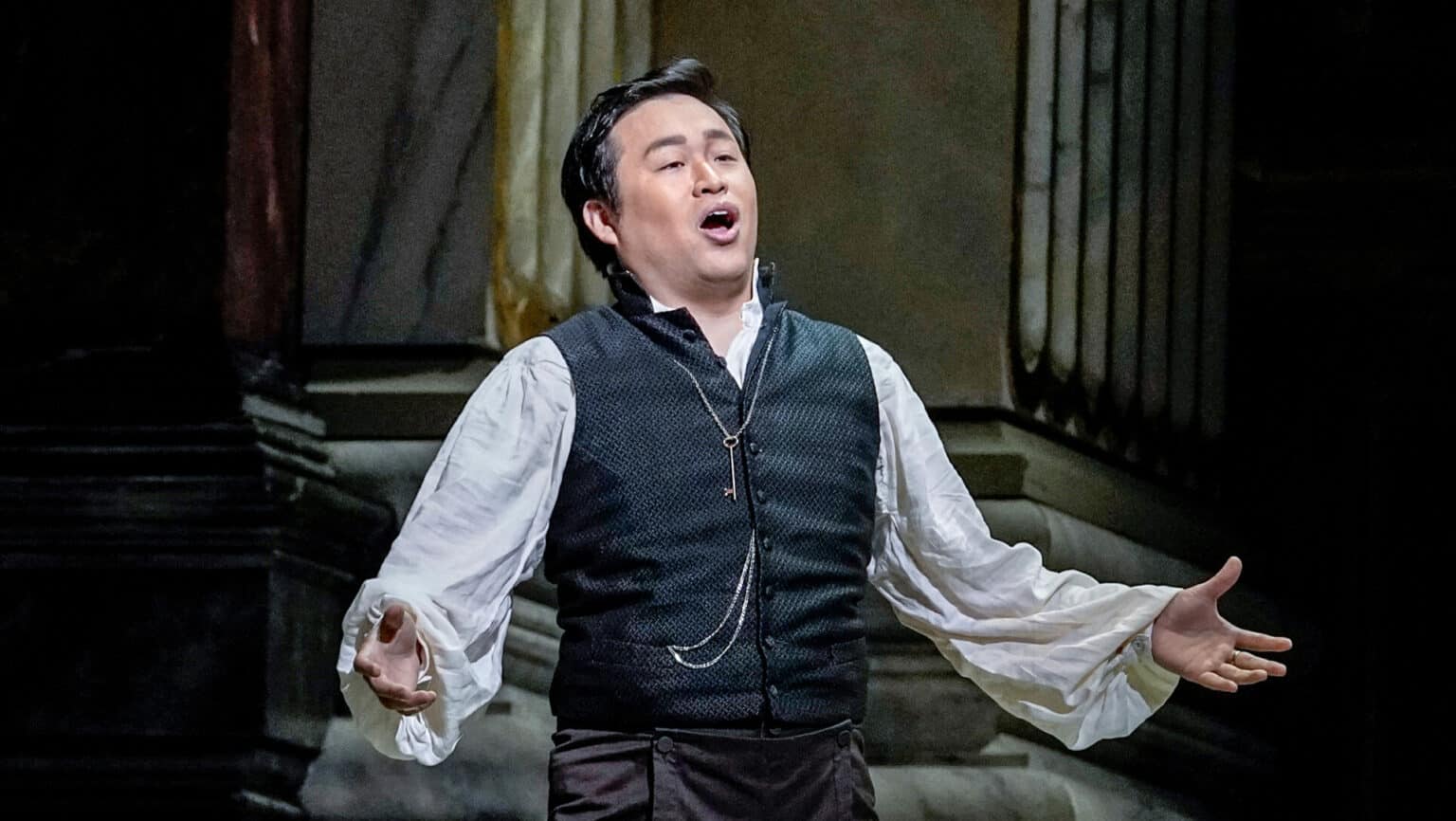More trouble in Paris: Chorus expects to be paid
mainMembers of the chorus of the Orchestre de Paris, which is moving into a 380 million-Euro new hall next month, have discovered a painful anomaly. The conductor gets paid, the musicians likewise, so too the head of the chorus. However, not a cent goes to the 220 singers. Can that be right?
Here’s their open letter:

Amis instrumentistes, comédiens ou danseurs,
Cher public,À la Philharmonie de Paris, dans quasiment tous les spectacles, le chef d’orchestre sera rémunéré, le chef de chœur sera rémunéré, les chanteurs solistes seront rémunérés, les techniciens seront rémunérés, la dame de l’accueil sera rémunérée, la femme de ménage sera rémunérée, les instrumentistes de l’orchestre seront rémunérés et les chanteurs du chœur ne le seront pas.
Tout simplement parce que cet édifice prestigieux conçu par Jean Nouvel, pourvu d’une grande salle comparable en capacité à celle de l’Opéra de Paris (2 400 places), qui ouvrira ses portes dès le mois de janvier et coûtera quelque 380 millions d’euros aux contribuables (http://www.philharmoniedeparis.fr/), a décidé d’accueillir en résidence le chœur de l’Orchestre de Paris, un chœur amateur dont les 220 chanteurs, non professionnels, ne sont, par définition, pas payés.
Depuis quelques années déjà, à la faveur d’une crise économique dont nous ne voyons pas la fin, les spectacles produits par des compagnies amateurs, et coûtant de ce fait beaucoup moins cher que des spectacles professionnels, se multiplient. Pourquoi pas ? Si chanter est notre métier, nous concevons bien évidemment que ce puisse être un loisir pour d’autres, exerçant diverses professions par ailleurs. Loin de nous l’idée de vouloir leur interdire l’accès à une scène.
Aussi, nous demandons solennellement l’arrêt du recours abusif à des artistes des chœurs amateurs dans les structures professionnelles subventionnées.
Rappelons à ce titre qu’un chanteur professionnel qui ne travaille pas, c’est aussi un chômeur de plus à financer.
Nous demandons également :
1. Qu’un chœur professionnel soit en résidence à la Philharmonie de Paris, avec, comme dans toute grande maison qui se respecte, un noyau dur en CDI et des artistes supplémentaires engagés en CDD.
2. Que les pouvoirs publics légifèrent enfin de manière claire afin que la pratique artistique amateur soit encadrée et ne puisse plus occasionner de concurrence déloyale vis à vis des artistes professionnels. Car, de même que dans n’importe quel autre métier, il est indécent qu’un travailleur bénévole (amateur, stagiaire, etc.) occupe un poste qui devrait être attribué à un salarié. Et ce qui est vrai dans une pizzeria, un bureau de poste, une salle de rédaction ou une compagnie d’assurance ne l’est pas moins sur une scène, qui plus est abondamment subventionnée !
À l’heure où le travail est si rare, nous estimons tout simplement qu’il ne peut se permettre d’être gratuit.
Le Collectif Colère lyrique





Cher Norman, ce ne sont pas des membres du Choeur de l’Orchestre de Paris qui ont écrit cette lettre ouverte et lancé cette pétition, mais un collectif d’ “Artistes lyriques professionnels”, qui se sont constitués contre l’emploi abusif de chœurs amateurs au sein des structures professionnelles subventionnées, à commencer par la Philharmonie de Paris.”
Voici le lien : http://www.rueduconservatoire.fr/article/4279/vie_culturelle/soutenez_les_artistes_lyriques_professionnels
Et bonnes fêtes !
nathalie kr.
It’s not a letter by the chorus of the OdP, nor do they expect to get paid; it’s a petition by – presumably – professional choral singers (“the group of vocal anger”) who say while there is a place in music life for large amateur choruses (chori?) like the one of the OdP, in a heavily subsidized professional environment like the new Philharmonie de Paris the resident chorus should not be an amateur ensemble.
The petition is not explicitly authored by members of the chorus of the Orchestre de Paris — as far as I can see from the orchestra’s website, its chorus has always been an amateur group, and its status is not changing with the move to the new hall. As I read it, the petition is a more general complaint at the proliferation of professional events using amateur singers (I have no idea of how common this is in France, although I know that many of the top UK orchestras have amateur choruses). In particular, it complains that the Philharmonie’s resident chorus will be the (amateur) chorus of the Orchestre de Paris, something which the petitioners consider to be inappropriate for such a prestigious venue. The implication is that this chorus-in-residence is putting the professional singers who would otherwise need to be hired for choral concerts at the Philharmonie out of work. It is not clear without knowing the full context whether this represents a deterioration as compared with employment practices at Salle Pleyel (does anybody know about this in detail?), which hosts many ensembles and orchestras other than the Orchestre de Paris.
I’ll note that the Dallas Symphony Chorus is unpaid. I think it may even have membership “dues”.
Probably quite a few arrangements like that in the US.
Quite a few? The vast majority of large professional symphony orchestras in the U.S. have unpaid resident choirs. In fact, I’m pretty sure the only ones that don’t are the Los Angeles and New York Philharmonics and the Philadelphia Orchestra. (The latter two have no resident chorus at all, as far as I know, and use different groups for different programs; the L.A. Phil uses the L.A. Master Chorale.)
Is that the hall? Looks good!
Just for information, the chorus of Orchestre de Paris sings in concert approximately 5 weeks a year, and has rehearsals twice a week from september to june.
There is absolutely no changes due to the move to Philharmonie.
As Nathalie and Michael said, this letter come from professional singers, and not from Orchestre de Paris’ chorus, composed since the creation by Daniel Barenboim and Arthur Oldham in 1976 by amateur singers.
Isn’t it the norm that members of choruses who work with the larger orchestras do not get paid? Arthur Oldham was one of great choral directors, responsible also for the creation of the superb Edinburgh Festival Chorus.
Ah, seasonal spirit; the professionals are concerned that the OdP chorus should be remunerated for their contribution… Ah, if only that were the case.
Instead, they seem to be looking to make sure that only pros are engaged for every OdP choral concert, backing this up with legislation that will mean the same for every other orchestra – in France and no doubt eventually EU-wide. So the cost of performing and recording the big choral works will rocket and we’ll end up instead with stupidity like trying to do the War Requiem with a choir of 60 (yes, Rattle tried it…).
Clever thinking…
It is indeed a petition written by professionnal singers. So much money has been put in this new Philarmonie, when so many groups are finding it really hard to keep their heads above the water, not one day goes by without bad news about grants being cancelled (take the Musiciens du Louvre, the regional opera houses, even the Art Florissants….). Making a career as a professionnal singer in France is becoming very complicated, that’s why this petition was released.
Dear Nick,
It is a “norm” in the UK and USA but not in France, Germany, Sweden, etc…
I have been a permanent member of the “Choeur de Radio France” for 15 years, working 5 or 6 days a week and singing a different programme (from baroque to contemporary music, with or without orchestra) every ten days. As such I was an employee and very happy to earn my living as a professional singer!
It is true that other symphonic choirs have a different tradition (“Wiener Singverein”), but can’t we fear that with enormous cuts in the budgets, the decision makers will get used to hiring amateur singers instead of paying professionnal and trained singers, thus leaving a large part of a very demanding repertoire to oblivion?
Great chorusmasters can certainly obtain satisfying results with amateur singers as long as they work with them on the long term. But long-term conductors are maybe not a norm anymore…